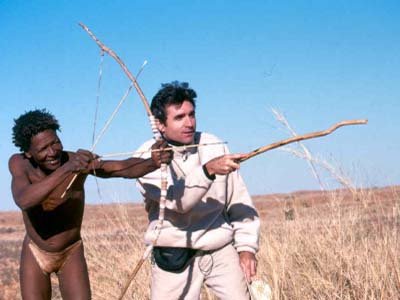The following is a list of common questions and answers for the independent traveler.
Please explain visas?
Each and every country has its own policy for admitting visitors. Some require you to have a visa, others do not. A visa is a stamp or sticker placed in your passport granting you permission to visit, or pass through a country. The stamp itself indicates how long you are allowed to stay in that country. Visas are issued by embassies and consulates. You must have a valid passport. You will not be issued a visa if your passport is due to expire within six months. Nationality of the passport holder effects entry and length of stay. For example, Israelis are not permitted into most Muslim countries. The city you pick up your visa is also important. For example, a two month visa for Taiwan can only be obtained in Hong Kong, and some countries are weeks slower than others in issuing visas. Ask other travelers for the best locations to renew or pick-up.
Don’t some countries have weird requirements to get their visa?
Yes. Some governments issuing visas for several months, namely Australia (OZ) and the European Union (EU), require evidence that you have enough money to support yourself. They do this because they do not want you working. So in order to get a six-month visa to Oz, you have to show about $3000 (called sufficient funds) to the embassy personnel. Another weird one is the minimum expenditure requirement. Certain countries with weaker currencies require you to convert a certain amount of money into their currency, depending on your length of stay. This is designed to discourage black-market trading. Countries in the former east bloc (Russia, and some of the “Stan” countries), South Yemen, Angola and Ghana have such requirements.
Is there a publication I can get on visa requirements?
Yes. The U.S. government will send you a comprehensive list specifying all visa requirements worldwide, free of charge. Write to: U.S. Department of State, Passport Services Correspondence Branch, Room 386, 1425 K Street NW, Washington, DC 20524. The U.S. government is a wealth of travel information. Two recommended free publications from the U.S. State Department will help get you started. The first is Tips for Travelers, which covers currency regulations, customs, and other general tips for individual countries. The second is Background Notes, which provides updated information on various countries’ culture, history, geography, government, economy and political conditions. Contact the Superintendent of Documents, U.S. Government Printing Office, Washington, DC 20402, (202) 783-3238, or check your local library. For complete (recorded) State Department travel information, call 202-647-5225; to access the Consular Affairs (computer) Bulletin Boards, call 202-647-3000; for information by fax, call 202-647-3000 from your fax machine.
Is it necessary to request free brochures from foreign tourism agencies?
Not usually. All those glossy pamphlets are pretty unrealistic and cater to tourists, anyhow. It is important not to get too bogged down with paperwork. For preparation, this book is all you need!
Is there anything I cannot bring back into the country?
Yes. Human bones, ivory, marine-mammal products, furs, coral, tortoise shells, reptile skins, feathers, and certain other wildlife products will be confiscated by custom officials. Besides, buying these products is unethical and perpetuates the destruction of our planet. For specifics, call the public information office of the World Wildlife Fund at (202) 293-4800 and ask for the “Buyer Beware” booklet.
Okay, I want to travel, but what is the right trip or duration for me?
That depends entirely on your time, money, and desire. Deciding which part of the world you wish to see should depend on what you know about that region beforehand, and also what interests you. If you have taken Spanish classes, maybe South or Central America would be fun. If you studied Western Civilization then Europe or the safe countries in the Middle East would be cool. If international business was your major than East Asia would be particularly rewarding. If you like to party and kick back, go to Southeast Asia or Australia. If you don’t have much money then try the ultra-cheap Sub-Continent circuit. If you want it all, take a round-the-would-tour.







